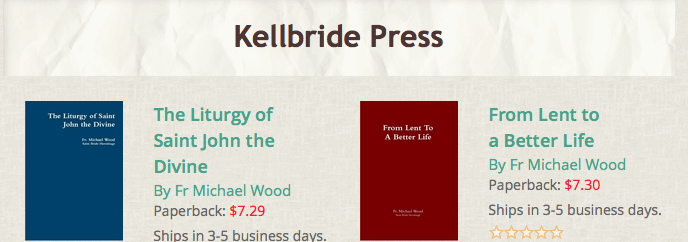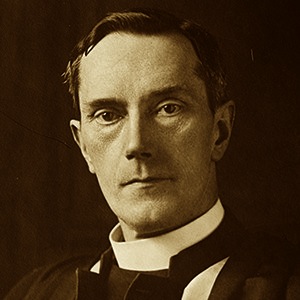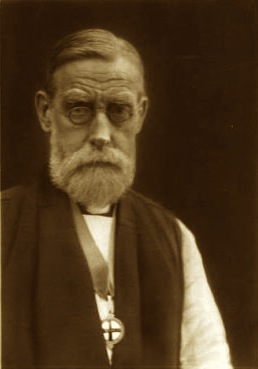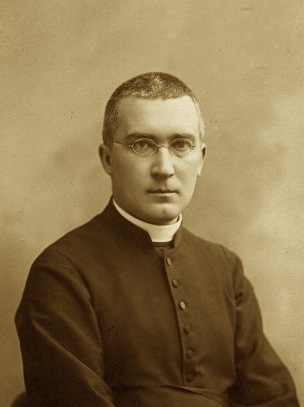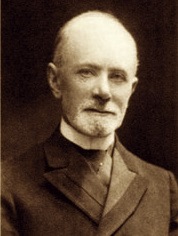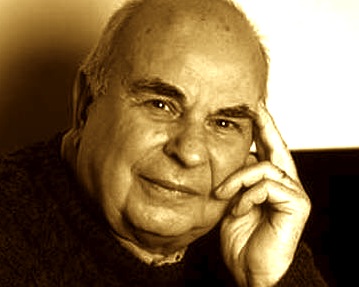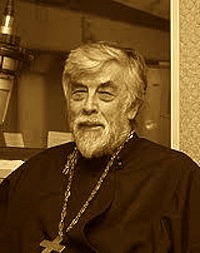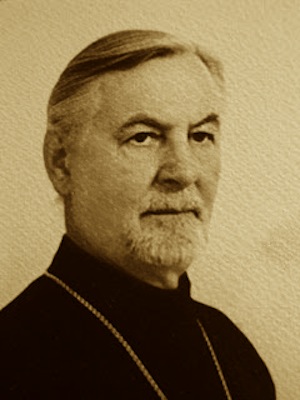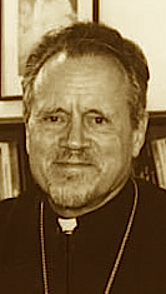The Didache, or Teaching of the Apostles
This should be read by every Christian believer as it is the teaching of the earliest Church. The name Didache is from the Greek word related to “doctrine,” The only known complete Didache is the Codex Hierosolymitanus, preserved at Constantinople which contains a complete Georgian version of the Didache, the title includes the words “written in the year 90 or 100 after the Lord Christ.” This is the teaching of the Apostles at such an early time that only two of the Gospels are quoted and none of the Epistles. The Didache recounts a primitive liturgy and was probably written contemporaneously with the Gospel of Saint Matthew. The Markan Gospel was probably written in the AD 70s and the Matthaian in the AD 80s but they were written independently in different geographic areas. The Didache, like the Matthaian Gospel is thought to be Syriac in terms of region of composition. The Church At that time of course had no New Testament – just a few documents floating around, yet here is the clear teaching of Christ being handed on to the Church by the Apostles in this short catechism-like document. We believe that this was the document sent by Saint John the Divine to the Church in Britain shortly after it was written.
Chapter 1
There are two ways, one of life and one of death, and there is a great difference between the two ways.
The way of life is this.
First of all, Love God who made you;
Secondly, Love your neighbour as you love yourself.
Do not do anything to another you would not want to befall yourself.
Now of these words the doctrine is this. Bless those who curse you, pray for your enemies, and fast for those who persecute you; For what thanks do you deserve, if you love them that love you? Do not even the Gentiles do the same? But do love those who hate you, and you will not have an enemy.
Abstain from fleshly and bodily lusts.
If any man give you a blow on your right cheek, turn the other to him also, and you will be flawless; If a man compel you to go one mile with him, go two with him; If a man take away your cloak, give him also your coat; If a man takes away from you that which is your own, do not ask it back, for you are unable to do that. Give to every man that asks of you and do not ask it back; For the Father desires that gifts be given to all from His own bounties. Blessed is he that gives according to the commandment; For he is guiltless. Woe to him that receives; For, if a man in need receives, he is guiltless; But he that has no need shall give satisfaction why and wherefore he received; And being put in confinement he shall be examined concerning the deeds that he has done, and he shall not come out from there until he has given back the last penny.
Yea, as touching this also it is said; Let your alms sweat in your hands, until you will have learned to whom to give.
Chapter 2
And this is the second commandment of the teaching.
You shall do no murder, you shall not commit adultery, you shall not corrupt boys, you shall not commit fornication, you shall not steal, you shall not deal in magic, you shall do no sorcery, you shall not murder a child by abortion nor kill them when born, you shall not covet your neighbour’s goods, you shall not perjure yourself, you shall not bear false witness, you shall not speak evil, you shall not cherish a grudge, you shall not be double-minded nor double-tongued;
For the double tongue is a snare of death. Your word shall not be false or empty, but fulfilled by action.
You shall not be avaricious nor a plunderer nor a hypocrite nor ill-tempered nor proud. You shall not entertain an evil design against your neighbour.
You shall not hate any man, but some you shall reprove, and for others you shall pray, and others you shall love more than your life.
Chapter 3
My child, flee from every evil and everything that resembles it. Do not be angry, for anger leads to murder, nor be jealous nor contentious nor wrathful; For of all these things murders are engendered.
My child, be not lustful, for lust leads to fornication, neither foul-speaking neither with uplifted eyes; For of all these things adulteries are engendered.
My child, do not be a dealer in omens, since it leads to idolatry, nor be an enchanter nor an astrologer nor a magician, neither be willing to look at them; For from all these things idolatry is engendered.
My child, do not be a liar, since lying leads to theft, neither be avaricious nor glory in vanities. For from all these things thefts are engendered.
My child, do not be a murmurer, since it leads to blasphemy, neither be self-willed nor a thinker of evil thoughts;For from all these things blasphemies are engendered. But be meek, since the meek shall inherit the earth.
Be long-suffering and pitiful and guileless and quiet and kindly and always fearing the words which you have heard.
You shall not exalt yourself, neither shall you admit boldness into your soul. Your soul shall not accompany the lofty, but you shall walk with the righteous and humble.
You shall receive as good the accidents that befall you, knowing that nothing is done without God.
Chapter 4
My child, you shall remember night and day him that speaks the word of God to you, and your shall honour him as you do the Lord; For wherever the Lord speaks, there is the Lord. Moreover you shall seek out day by day the persons of the saintly, that you may find rest in their words.
You shall not make a schism, but you shall pacify them that contend;
You shall judge righteously; you shall not make a distinction in a person’s status or class to reprove him for transgressions.
You shall not doubt whether a thing shall be or not be.
Concerning giving, do not be found holding out your hands to receive, but drawing them in. If you have ought passing through your hands, you shall give a ransom for your sins. You shall not hesitate to give, neither shall you murmur when giving; For you shall know who is the good paymaster of your reward.
You shall not turn away from him that is in need, but shall share with your brother in all things and not say that anything is exclusively your own.
For if you are fellow-partakers in that which is imperishable, how much more so in the things which are perishable? You shall not withhold your hand from your son or daughter, but from their youth you shall teach them the fear of God.
You shall not command your bondservant or your handmaid who trust in the same God as yourself when you are in a bitter mood, for fear that by chance they might cease to fear the God who is over both of you; For He comes, not to call men with respect of persons, but He comes to those whom the Spirit has prepared. But you, servants, shall be subject unto your masters, as to a type of God, in shame and fear.
You shall hate all hypocrisy, and everything that is not pleasing to the Lord.
You shall never forsake the commandments of the Lord;
But shall keep those things which you have received, neither adding to them nor taking away from them.
You shall confess your transgressions in church and not go to prayer with an evil conscience. This is the way of life.
Chapter 5
The way of death is this:
First of all, it is evil and full of a curse: murders, adulteries, lusts, fornications, thefts, idolatries, magical arts, witchcrafts, plunderings, false witnessings, hypocrisies, doubleness of heart, treachery, pride, malice, stubbornness, covetousness, foul-speaking, jealousy, boldness, exaltation, boastfulness; Persecutors of good men, hating truth, loving a lie, not perceiving the reward of righteousness, not adhering to the good nor to righteous judgment, wakeful not for that which is good but for that which is evil; From whom gentleness and forbearance stand aloof; Loving vain things, pursuing a recompense, not pitying the poor man, not toiling for him that is oppressed with toil, not recognizing Him that made them, murderers of children, corrupters of the creatures of God, turning away from him that is in want, oppressing him that is afflicted, advocates of the wealthy, unjust judges of the poor, altogether sinful. May you be delivered, my children, from all these things.
Chapter 6
Be careful for fear that any man lead you astray from this way of righteousness, for he teaches you apart from God. For if you are able to support the whole yoke of the Lord, you shall be flawless; But if you are not able, do that which you are able. But concerning eating, bear that which you are able; By all means abstain from meat sacrificed to idols; For it is the worship of dead gods.
Chapter 7
But concerning Baptism, this is how you shall Baptise. Having first recited all these things, Baptise in living water in the name of the Father and of the Son and of the Holy Spirit. But if you do not have running water, then Baptise in other water; And if you are not able in cold, then in warm. But if you have neither, then pour water on the head three times in the name of the Father and of the Son and of the Holy Spirit. But before the Baptism, let him that Baptises and him that is Baptised fast, and any others also who are able; And you shall order him that is Baptised to fast a day or two before.
Chapter 8
And let not your fastings be with the hypocrites, for they fast on the second and the fifth day of the week; But do you keep your fast on the fourth and on the preparation day.
Neither pray you as the hypocrites, but as the Lord commanded in His Gospel, thus pray you:
Our Father, Who are in heaven, hallowed be Thy name; Thy kingdom come; Thy will be done, as in heaven, so also on earth; Give us this day our daily bread; And forgive us our debt, as we also forgive our debtors; And lead us not into temptation, but deliver us from the evil one; For Thine is the power and the glory for ever and ever. Pray this three times in the day.
Chapter 9
But as touching the Eucharistic thanksgiving give you thanks thus. First, as regards the cup: We give You thanks, O our Father, for the holy vine of Thy son David, which Thou made known to us through Thy Son Jesus; Thine is the glory for ever and ever. Then as regards the broken bread: We give Thee thanks, O our Father, for the life and knowledge which Thou did make known to us through Thy Son Jesus; The glory is Thine for ever and ever. As this broken bread was scattered upon the nations and being gathered together became one, so may Thy Church be gathered together from the ends of the earth into Thy kingdom; For Thine is the glory and the power through Jesus Christ for ever and ever.
But let no one eat or drink of this Eucharistic thanksgiving, except those who have been Baptised into the name of the Lord; For concerning this also the Lord has said: Give not that which is holy to the dogs.
Chapter 10
And after you are satisfied thus give you thanks: We give Thee thanks, Holy Father, for Thy holy name, which Thou hast made as a tabernacle in our hearts, and for the knowledge and faith and immortality, which Thou hast made known unto us through Thy Son Jesus;
Thine is the glory for ever and ever.
Thou, Almighty Master, did create all things for Thy name’s sake, and did give food and drink unto men for enjoyment, that they might render thanks to Thee; But did bestow upon us spiritual food and drink and eternal life through Thy Son. Before all things we give Thee thanks that Thou art powerful; Thine is the glory for ever and ever.
Remember, Lord, Thy Church to deliver it from all evil and to perfect it in Thy love; And gather it together from the four winds, even the Church which has been sanctified, into Thy kingdom which Thou hast prepared for it; For Thine is the power and the glory for ever and ever.
May grace come and may this world pass away.
Hosanna to the God of David.
If any man is holy, let him come;
If any man is not, let him repent. Maranatha. Amen.
But permit the prophets to offer thanksgiving as much as they desire.
Chapter 11
Whoever therefore shall come and teach you all these things that have been said before, receive him; But if the teacher himself be perverted and teach a different doctrine to the destruction thereof, hear him not; But if to the increase of righteousness and the knowledge of the Lord, receive him as the Lord.
But concerning the apostles and prophets, do according to the ordinance of the Gospel. Let every apostle, when he comes to you, be received as the Lord; But he shall not abide more than a single day, or if there be need, a little more. But if he abide three days, he is a false prophet. And when he departs, let the apostle receive nothing except bread, until he finds shelter; But if he asks for money, he is a false prophet. And you shall not put to a test nor discern any prophet speaking in the Spirit; For every sin shall be forgiven, but this sin shall not be forgiven. Yet not every one that speaks in the Spirit is a prophet, but only if he have the ways of the Lord. From his ways therefore the false prophet and the prophet shall be recognised. And no prophet when he orders a table in the Spirit shall eat of it; Otherwise he is a false prophet. And every prophet teaching the truth, if he does not what he teaches, is a false prophet. And every prophet approved and found true, if he does anything as an outward mystery typical of the Church, and yet does not teach you to do all that he himself does, shall not be judged before you; He has his judgment in the presence of God; For in old times the prophets did the same.
And whoever shall say in the Spirit, Give me silver or anything else, you shall not listen to him; But if he tell you to give on behalf of others that are in need, let no man judge him.
Chapter 12
Let every one who comes in the name of the Lord be received; And then when you have tested him you shall know him, for you shall have understanding on the right hand and on the left. If the visitor is a traveller, assist him, so far as you are able; But he shall not stay with you more than two or three days, if it be necessary. But if being a craftsman, he wishes to settle up with you, let him work for and eat his bread. But if he has no craft, according to your wisdom provide how he shall live as a Christian among you, but not in idleness. If he will not do this, he is trafficking upon Christ. Beware of such men.
Chapter 13
But every true prophet desiring to settle among you is worthy of his food. In like manner a true teacher is also worthy, like the workman, of his food. Every first-fruit then of the produce of the wine-vat and of the threshing-floor, of your oxen and of your sheep, you shall take and give as the first-fruit to the prophets; For they are your chief-priests. But if you do not have a prophet, give them to the poor. If you make bread, take the first-fruit and give according to the commandment. In like manner, when you make a jar of wine or of oil, take the first-fruit and give to the prophets; Yea, and of money and raiment and every possession take the first-fruit, as shall seem good to you, and give according to the commandment.
Chapter 14
And on the Lord’s own day gather yourselves together and break bread and give thanks, first confessing your transgressions, that your sacrifice may be pure. And let no man who has a dispute with his fellow, join your assembly until they have been reconciled, that your sacrifice may not be defiled; For this is the same sacrifice spoken of by the Lord; In every place and at every time offer Me a pure sacrifice; For I am a great king, says the Lord, and My name is wonderful among the nations.
Chapter 15
Elect for yourselves therefore bishops and deacons worthy of the Lord, men who are meek and do not love of money, and who are true and approved; For they also perform to you the service of the prophets and teachers. Therefore do not scorn them; For they are your honourable men, along with the prophets and teachers.
And reprove one another, not in anger but in peace, as you find in the Gospel; And let no one speak to any who have done wrong towards his neighbour, neither let him hear a word from you, until he repent.
Do your prayers and your alms-giving and all your deeds you as you find it in the Gospel of our Lord.
Chapter 16
Be watchful for your life; Let your lamps not be quenched and your loins not ungirded, but you be ready; For you know not the hour in which our Lord comes. And you shall gather yourselves together frequently, seeking what is fitting for your souls; For the whole time of your faith shall not profit you, if you be not perfected at the last season.
For in the last days the false prophets and corrupt doers shall be multiplied, and the sheep shall be turned into wolves, and love shall be turned into hate. For as lawlessness increases, they shall hate one another and shall persecute and betray.
And then the world-deceiver shall appear as a son of God; And shall work signs and wonders, and the earth shall be delivered into his hands; And he shall do unholy things, which have never been since the world began. Then all created mankind shall come to the fire of testing, and many shall be offended and perish; But they that endure in their faith shall be saved by the Curse Himself (Christ). And then shall the signs of the truth appear; First a sign of an opening in the heaven, then a sign of a voice of a trumpet, and thirdly a resurrection of the dead; Yet not of all, but as it was said: The Lord shall come and all His saints with Him. Then shall the world see the Lord coming upon the clouds of heaven.
At the beginning of Chapter 2: Two things here are new — “you shall not corrupt boys” and “you shall not murder a child by abortion nor kill them when born.” The present controversy over whether abortion is “murder” is ignored and a special category of acts not to be done by Christians is added. Paedophilia, abortion, and infanticide were common practices in the period of the early Church.
Prophets were inspired or inspiring preachers who were “forth-tellers” rather than “foretellers.”
“But you shall not test nor discern them” This is a startling interpretation of the mysterious unforgiveable sin, blasphemy against the Holy Spirit, mentioned in Matthew 12:31 and Mark 3:29. However one shall interpet this sin, it is obvious that the only unforgiveable sin is one that prevents a person from coming to the Lord for forgiveness. Thus it is clear that people who worry about having committed this sin have not done so.
